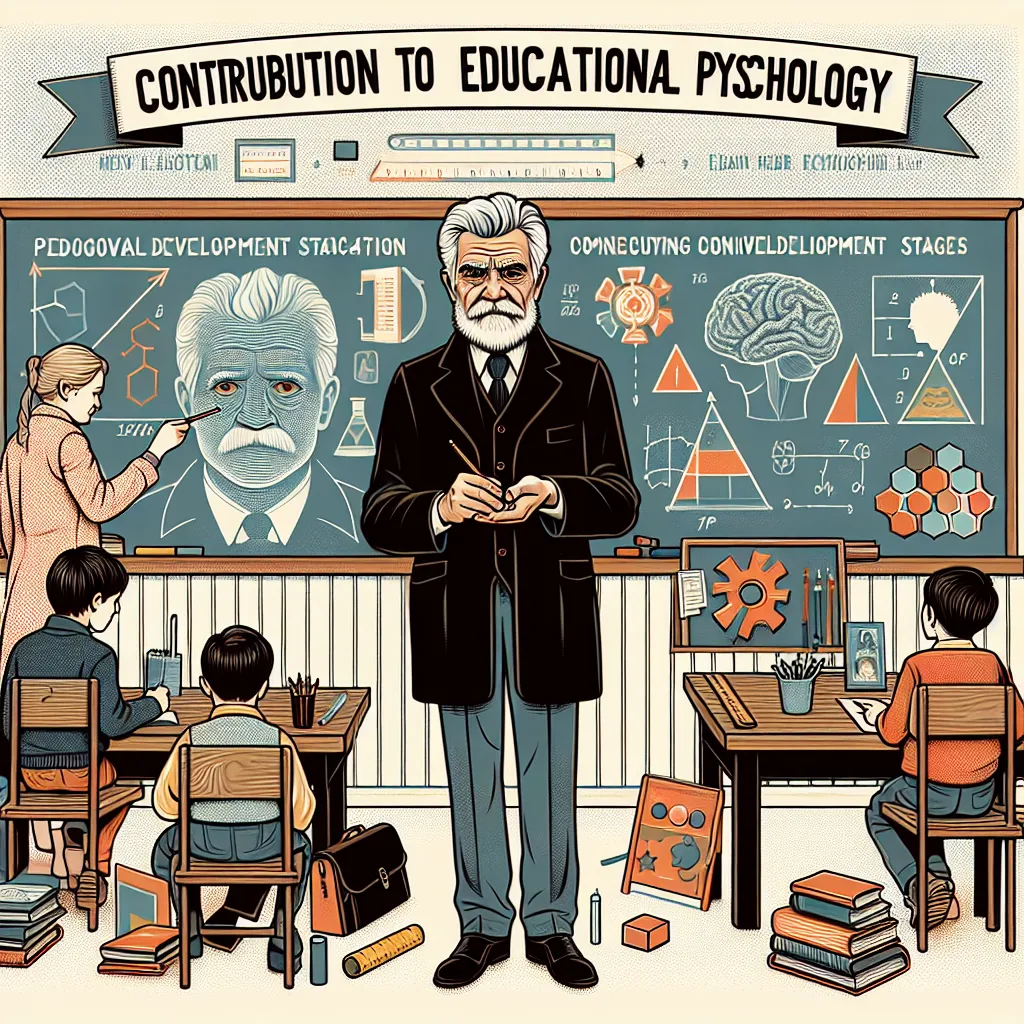Jean Piaget, a name synonymous with transforming our understanding of children’s cognitive development, made substantial contributions to the field of educational psychology. His theory of intellectual growth and thought processes has influenced educators worldwide, prompting a shift from traditional techniques to methodologies that embrace child-centered learning.
Jean Piaget was born on August 9, 1896, in Neuchâtel, Switzerland. As a precocious child, his interests in the natural sciences blossomed early, leading to a published scientific paper on mollusks at the age of ten. This early start foreshadowed the impressive body of work that Piaget would produce over his lifetime, much of which would revolutionize the field of educational psychology.
Piaget’s insights emerged from a rich array of experiences. In his early career, while working in the Binet Laboratory in Paris, he became intrigued by the different ways children answered questions. This curiosity marked the beginning of a lifelong endeavor to understand the inner workings of the child’s mind. Piaget’s singular focus was to explore how children come to understand the world around them and how their cognitive abilities evolve over time.
With his groundbreaking theory of cognitive development, Piaget postulated that children move through four distinct stages of growth: the sensorimotor stage (from birth to about 2 years), the preoperational stage (from 2 to 7 years), the concrete operational stage (from 7 to 11 years), and the formal operational stage (from about 11 years into adulthood). Each stage represents a qualitative shift in the child’s thinking and perception of the world.
The sensorimotor stage is characterized by the infant’s knowledge of the world limited to their sensory perceptions and motor activities. During this time, children learn about their environment by touching, tasting, and moving within it. The most notable achievement in this stage is the development of object permanence—recognizing that objects continue to exist even when they are no longer visible.
In the preoperational stage, children begin to think symbolically and use words or pictures to represent objects. However, at this stage, they still lack the ability to perform operations, or reversible mental processes. A child’s thought process in this stage is egocentric, meaning they can only view the world from their own perspective.
The shift to the concrete operational stage marks the development of the ability to think logically about concrete events and perform operations. Children start to understand the concept of conservation—the understanding that quantity remains the same even when its shape changes. This stage allows children to use inductive logic, or reasoning from specific information to a general principle, but they still struggle with abstract and hypothetical concepts.
Finally, the formal operational stage heralds the onset of abstract thinking, deductive reasoning, and systematic planning. Children can now think about abstract concepts, contemplate possible outcomes, and engage in scientific reasoning.
Piaget’s theory elucidated that learning is a dynamic process where children construct knowledge based on their experiences. He argued that through assimilation and accommodation, children adapt to their environment. Assimilation is the process of taking new information and fitting it into pre-existing cognitive schemas, whereas accommodation is the process of altering one’s understanding to accommodate new information.
Piaget’s contributions to educational psychology have had lasting effects on teaching strategies. His emphasis on the importance of developmental stages suggested that educators must tailor their instruction to their students’ cognitive abilities. By acknowledging that children are active and motivated learners, Piaget’s theory paved the way for educational models that promote inquiry, discovery, and hands-on learning. An example of Piaget’s influence is seen in the shift toward constructivist classrooms, where children are encouraged to build their sense of understanding and knowledge through active exploration.
Furthermore, Piaget’s insights into the preoperational stage’s limitations on children’s thought processes have discouraged premature instruction in logic, reasoning, and abstract concepts that they are not yet cognitively equipped to handle. Conversely, during the concrete operational stage, Piaget’s theory points toward the use of concrete objects and examples to help children learn, by linking new information to their direct, tangible experiences.
Piaget’s findings also highlight the critical role of play in learning. He believed that when children play, they are not just engaging in mere activities, but are actively experimenting and learning about their environment. Play-based learning initiatives, which encourage cognitive development through interactive games and imaginative activities, reflect Piaget’s influence. Teachers now use educational games to help children develop logical and operational thinking skills in line with their developmental stage.
Despite his contributions, Piaget’s theories have also faced criticism over the years. Critics have argued that Piaget underestimated children’s abilities and that his theory pays insufficient attention to cultural and social influences on cognitive development. Moreover, recent research has shown that cognitive development does not happen in rigid, defined stages, as suggested by Piaget, but rather, appears to be more fluid and overlapping.
However, even in light of criticism, Piaget’s core ideas remain influential. He was not only a prominent figure in developmental and educational psychology but also an innovator in child-centric learning. His work continues to impact educational practices, as educators and psychologists build upon and refine his theories to create more effective teaching methods.
Throughout his career, Jean Piaget authored over sixty books and several hundred articles. His prolific writings and his profound influence on psychology earned him numerous awards and distinctions, and he was revered as one of the leading figures in developmental psychology until his death in 1980.
In conclusion, Jean Piaget’s contribution to educational psychology cannot be overstated. His comprehensive theory of cognitive development has provided a framework for understanding how children think and learn. Piaget shifted the paradigm from perceiving children as passive recipients of knowledge to viewing them as active constructors of their own cognitive worlds. His work has spurred countless educational reforms, ensuring that his legacy persists in classrooms around the globe. As educators continue to draw inspiration from his findings, Piaget’s influence remains a cornerstone in the quest to unlock the full potential of every child’s learning capabilities.



Leave a Comment